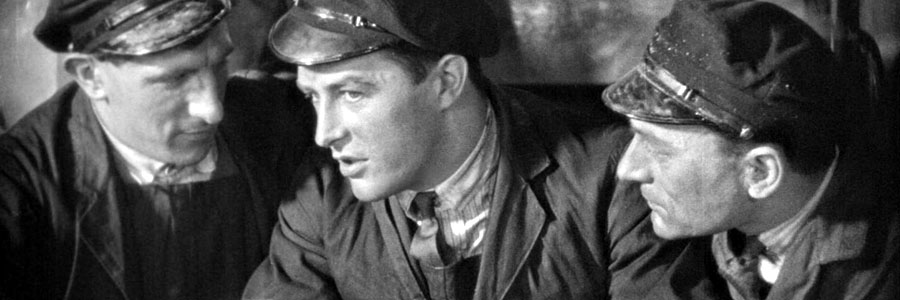
The Flying Scotsman

THE FLYING SCOTSMAN (MOVIE)
British International Pictures
Original release: 1929
Running time: 50 minutes
Director: Castleton Knight
Writers: Victor Kendall, Garnett Weston, Freeman Crofts
Cast: Moore Marriott, Pauline Johnson, Ray Milland, Alec Hurley

Films about trains might not sound all that appealing, yet they’ve played a big part in some very interesting stories over the years, for example Murder On The Orient Express (1974), based on the Agatha Christie novel, the original Taking Of Pelham 123 (1973) and even a Bollywood disaster film with The Burning Train (1980).
Recent years however have not offered that many great train stories, perhaps with the exception of The Polar Express (2004), so it’s with that we jump back in time to The Flying Scotsman to see how death defying stunts and new technology were combined to create a film which fuels impassioned discussions even today.
It’s about an elderly driver, Bob (Moore Marriott) who’s set to retire from working on the famous locomotive LNER Class A3 4472, the Flying Scotsman, but before he can do so, a disgruntled employee, Crow (Alec Hurley), returns to take revenge on him. Bob had earlier reported him for drinking on the job and as a result, Crow was sacked.
With the train on its way to Edinburgh from London, Bob and Crow’s new replacement, Jim (Ray Milland), must find a way to stop the Flying Scotsman from heading toward a disaster which Crow is determined to cause.
Pauline Johnson plays Joan, Bob’s daughter who just happens to be on the train and has taking a liking to Jim, much to her father’s disdain. Filmed while in motion, there’s a moment where we see Joan walking along the outside edge of the carriage wearing high heeled shoes. This probably thrilled and terrified audiences as much as it did when they saw a train pulling in to the station in the Lumière Brothers film L’arrivée d’un train en gare de La Ciotat (1896).

The Flying Scotsman starts off as a silent movie with speech captions to show dialogue placement but halfway through audiences hear recorded voices. It’s at first a jarring experience if you haven’t seen the film before.
There’s been a lot of debate as to whether or not The Flying Scotsman predates Alfred Hitchcock’s Blackmail (1929) as the first full length British talkie, but the BFI film database notes that the soundtrack was added in March 1930.
First or second, it doesn’t really matter because The Flying Scotsman remains a great piece of early cinema and contains all of the elements that are still used today to make movies that thrill audiences.

Patrick Samuel
The founder of Static Mass Emporium and one of its Editors in Chief is an emerging artist with a philosophy degree, working primarily with pastels and graphite pencils, but he also enjoys experimenting with water colours, acrylics, glass and oil paints.
Being on the autistic spectrum with Asperger’s Syndrome, he is stimulated by bold, contrasting colours, intricate details, multiple textures, and varying shades of light and dark. Patrick's work extends to sound and video, and when not drawing or painting, he can be found working on projects he shares online with his followers.
Patrick returned to drawing and painting after a prolonged break in December 2016 as part of his daily art therapy, and is now making the transition to being a full-time artist. As a spokesperson for autism awareness, he also gives talks and presentations on the benefits of creative therapy.
Static Mass is where he lives his passion for film and writing about it. A fan of film classics, documentaries and science fiction, Patrick prefers films with an impeccable way of storytelling that reflect on the human condition.
© 2022 STATIC MASS EMPORIUM . All Rights Reserved. Powered by METATEMPUS | creative.timeless.personal. | DISCLAIMER, TERMS & CONDITIONS
HOME | ABOUT | CONTACT | TWITTER | GOOGLE+ | FACEBOOK | TUMBLR | YOUTUBE | RSS FEED
CINEMA REVIEWS | BLU-RAY & DVD | THE EMPORIUM | DOCUMENTARIES | WORLD CINEMA | CULT MOVIES | INDIAN CINEMA | EARLY CINEMA
MOVIE CLASSICS | DECONSTRUCTING CINEMA | SOUNDTRACKS | INTERVIEWS | THE DIRECTOR’S CHAIR | JAPANESE CINEMA





